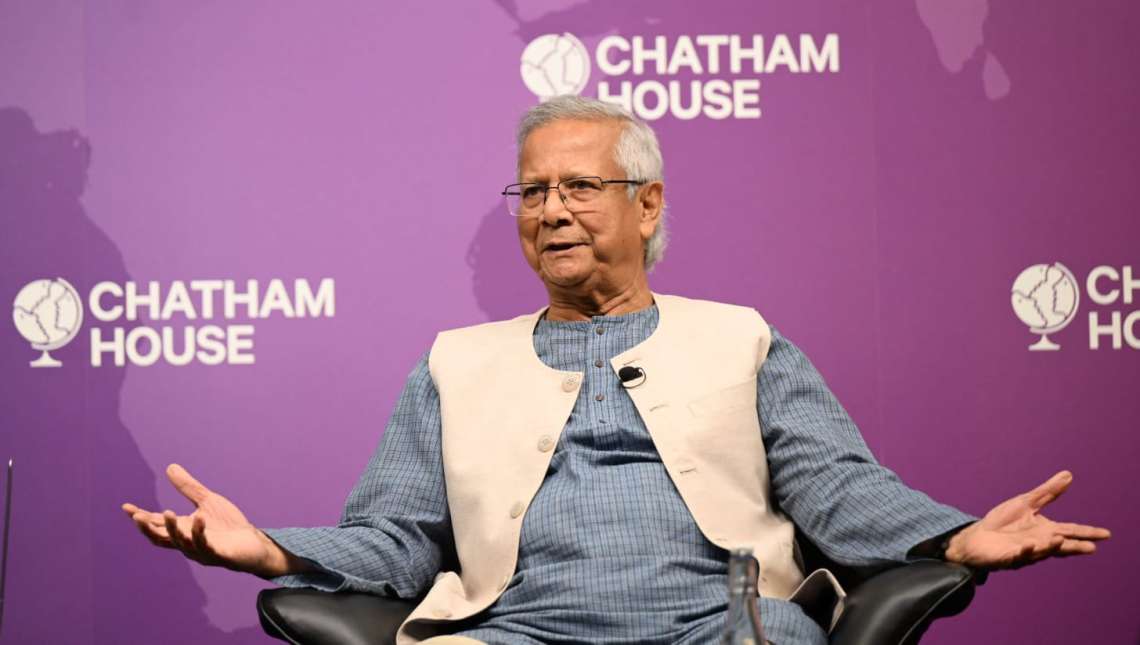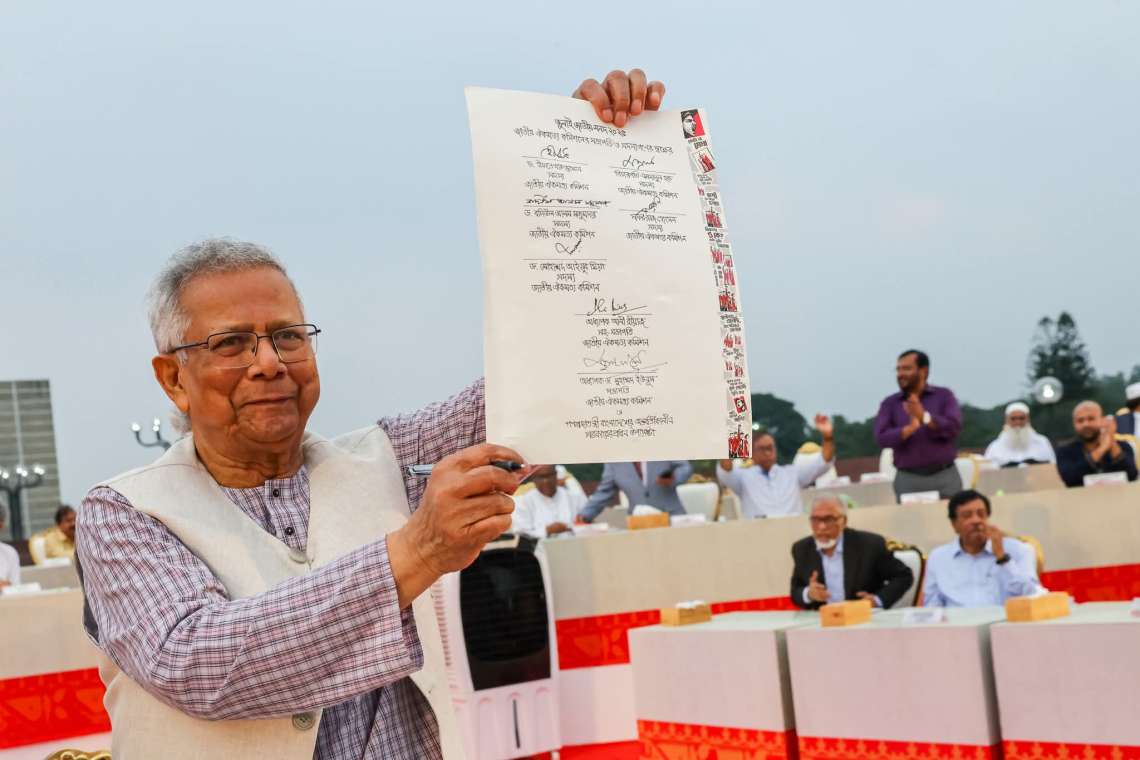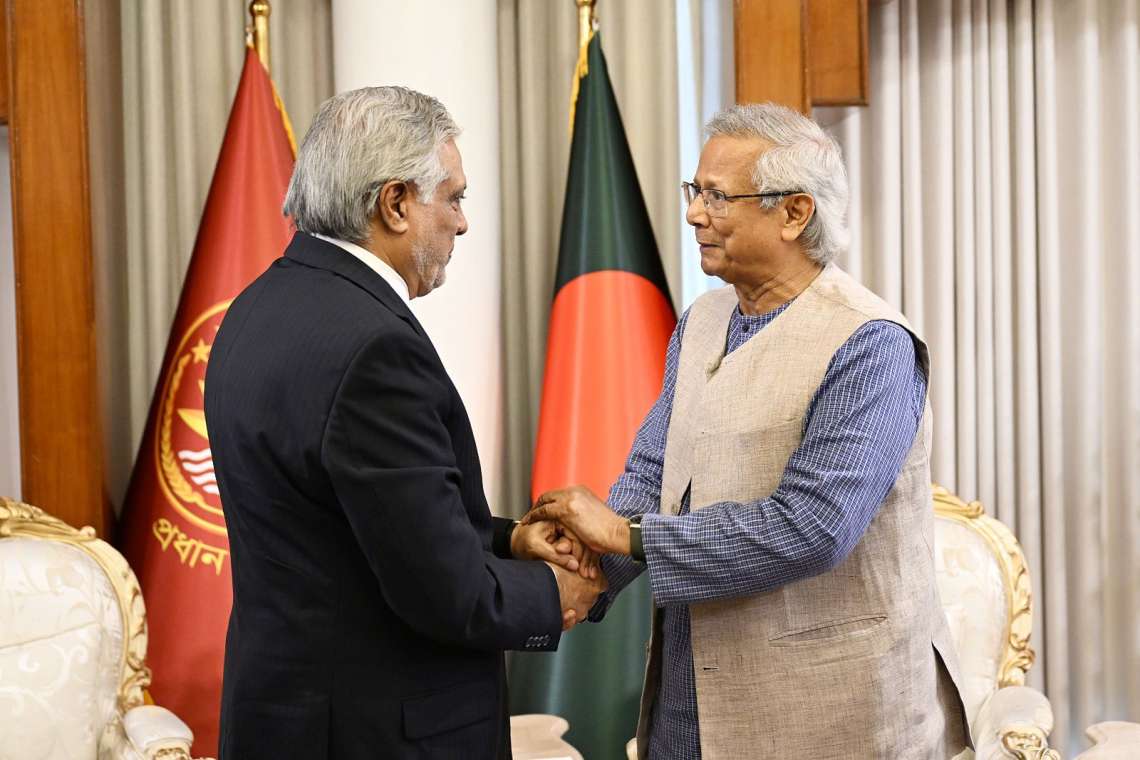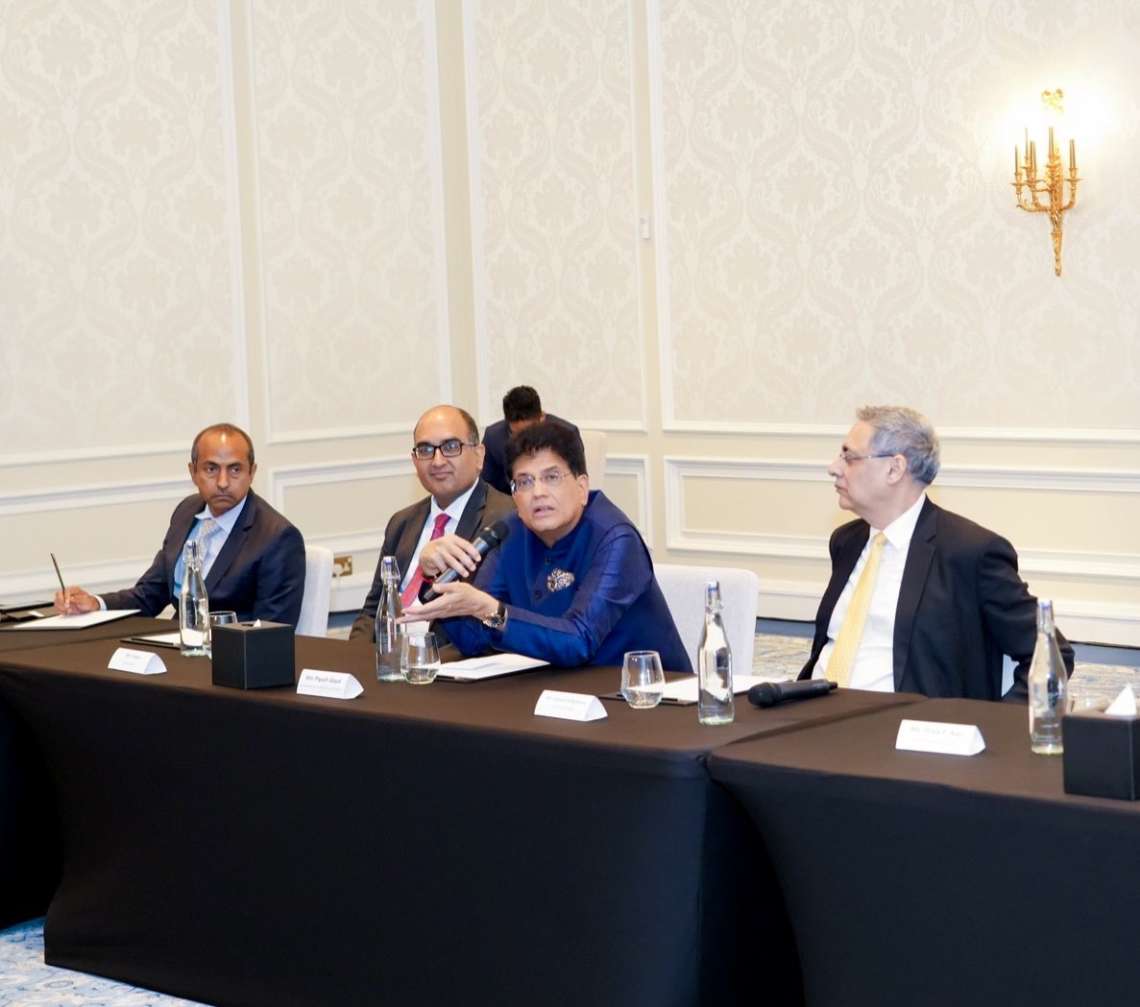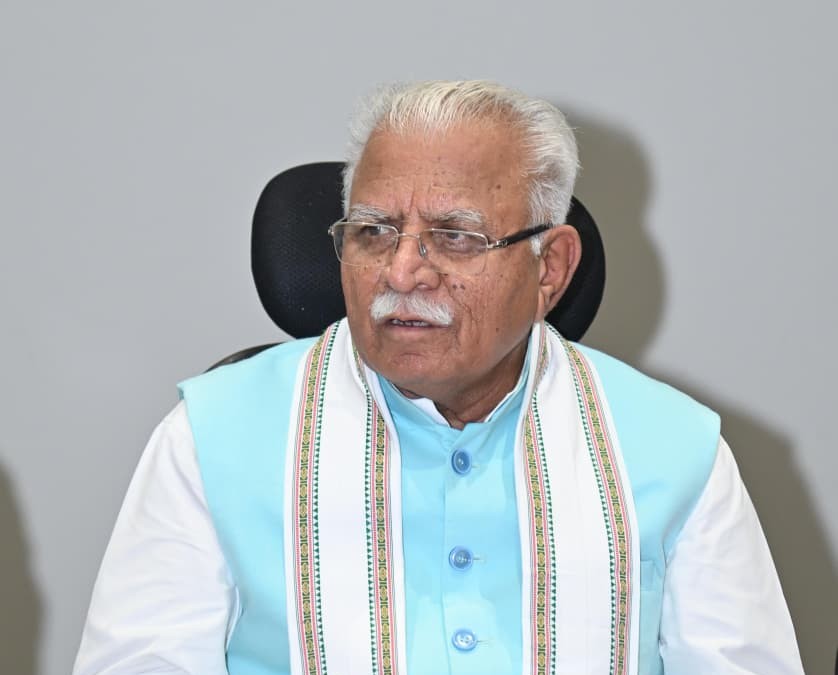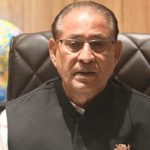Since taking charge as head of the interim government, Nobel Laureate Yunus Mohammed pledged reform — promising fair elections and transparent governance. A year on, those promises remain unfulfilled….writes Ashok Parameswar
Did anyone foresee Bangladesh falling so far so fast? One year after Sheikh Hasina fled into exile in India last August, the nation she once led stands engulfed in turmoil. Protests, mob violence, political uncertainty, and a fragile new regime have plunged Bangladesh into chaos. Peace is gone, replaced by fear and instability.
Since Muhammad Yunus, Nobel Laureate and head of the interim government, took charge, the promise was reform — to conduct fair elections and ensure transparent governance. But a year later, those pledges remain unfulfilled. Reports point to rising violence against minorities, especially Hindus, suppression of free speech, and curtailment of constitutional rights. Under Yunus, Bangladesh risks returning to an era of darkness.
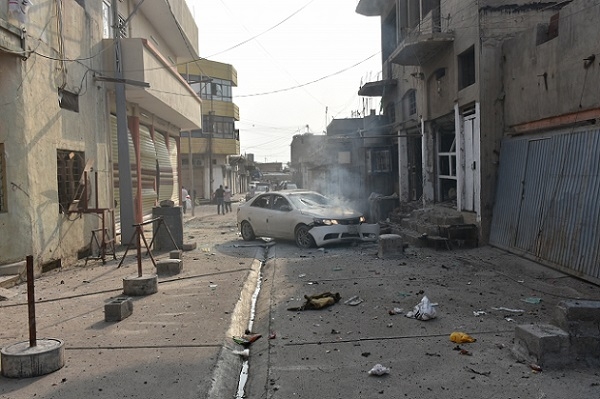
Press restrictions make the full picture unclear, but visible signs are worrying. Forces once marginalised have resurfaced, and the political fabric shaped by Sheikh Hasina and Khaleda Zia is fraying. For the Bangladeshi diaspora, the danger is obvious. Protests across global cities — London, Geneva, New York — highlight the growing alarm. They warn democracy is under siege, human rights are vanishing, and minority protections are eroded. They claim Bangladesh is sliding toward Islamic radicalism.
Yunus faces mounting criticism. Statistics show crimes against minorities rising, the Awami League banned, and dissidents jailed without due process. Reform, many argue, is becoming a cover for regression. Resurfacing Islamist groups, including Jamaat, threaten Bangladesh’s democratic structure.
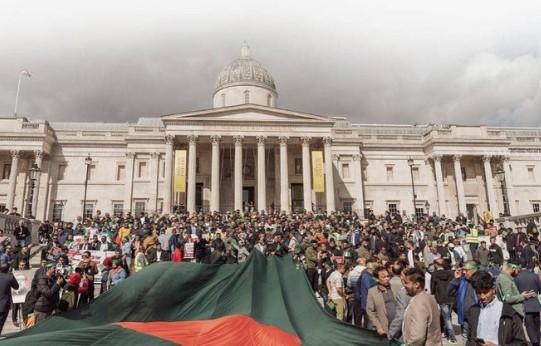
In New York on September 26, during Yunus’s UN General Assembly visit, hundreds of diaspora members protested outside the UN headquarters, chanting slogans such as “Yunus Pakistan! Go back to Pakistan” and “Stop killing minorities in Bangladesh.” They accused Yunus of turning Bangladesh into a “Taliban state” and demanded the release of imprisoned Hindu priest Chinmoy Krishna Das and other Awami League members. Protesters called for early, free elections and the end of the interim government. The demonstration drew global attention due to the occasion and location.
In Geneva, at the 60th UN Human Rights Council session, Awami League members protested at the Broken Chair. General Secretary Shaymal Khan denounced the Yunus government as “completely illegal” and a “terrorist takeover of state power.” Hasina addressed the protest by phone. Placards read “Killer Yunus” and “The world should boycott Muhammad Yunus,” demanding his resignation and the revocation of his Nobel Peace Prize.
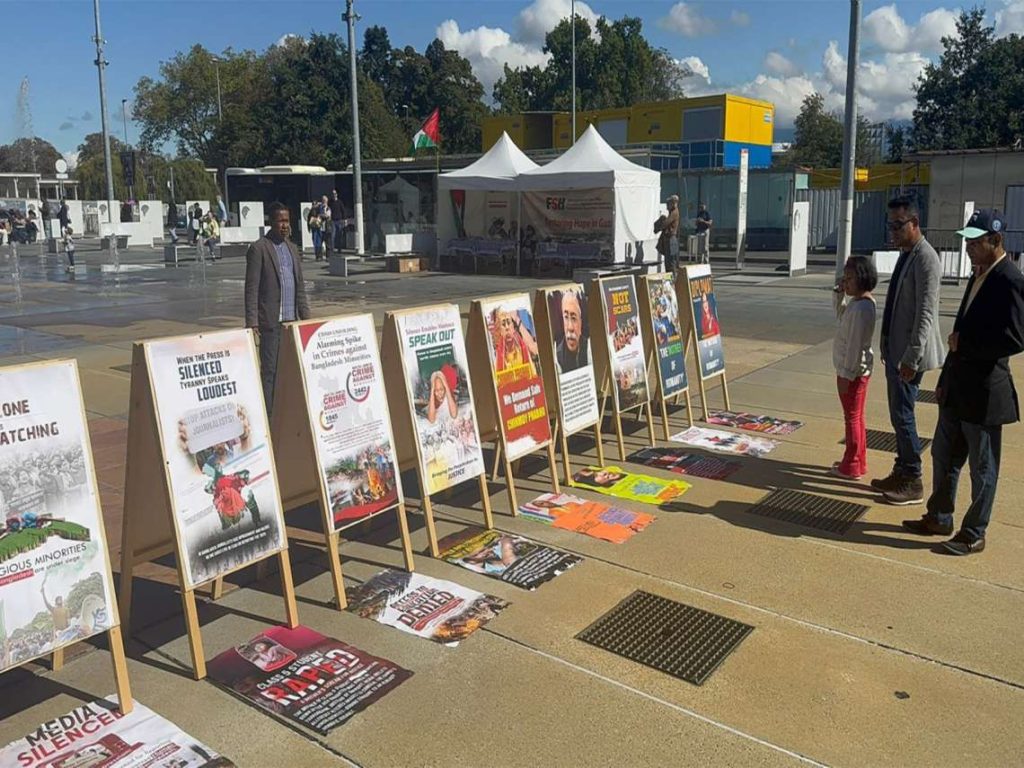
Last month, more than 2,000 diaspora members gathered in London’s Trafalgar Square, marching to Downing Street with a letter to Prime Minister Keir Starmer. It highlighted the erosion of law and minority rights, attacks on democratic institutions, and called for UK intervention to ensure peace and elections. The venue held historic symbolism. As the Awami League noted, “In 1971, Trafalgar Square hosted gatherings of Bengalis raising awareness for the Liberation War. Over five decades later, the square echoed again with the spirit of resistance.”
Chants of “Joy Bangla” (Victory to Bengal) rang through central London. The Awami League said: “Today, the streets of London echoed with ‘Joy Bangla’ as thousands expressed their lack of confidence in the Yunus regime.” They noted the slogan remains banned in Bangladesh. Protesters voiced support for Hasina, now in exile.
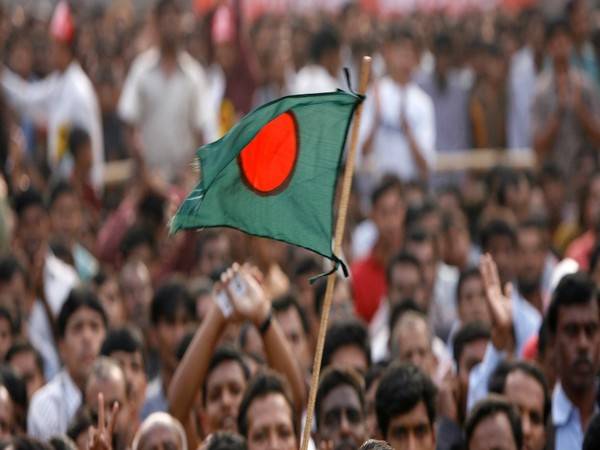
Yunus faces resistance at home. Tasked with ensuring a democratic transition, he instead consolidates power without elections, heightening tensions and encouraging extremism. He has spent 70 days abroad in the past year, visiting 12 countries at an estimated $26 million cost — moves critics say prioritise diplomacy over reform. While relations with India sour, Yunus strengthens ties with China through investments and visits. His banning of the Awami League and curbs on dissent fuel fears of authoritarianism.
As Bangladesh marks a year since Hasina’s fall, the question looms: is Yunus preparing the nation for democratic renewal, or paving the way for extremism and authoritarian rule? His actions so far suggest the latter. The crisis continues — inside Bangladesh and across the world — with the diaspora sounding the alarm louder than ever.


